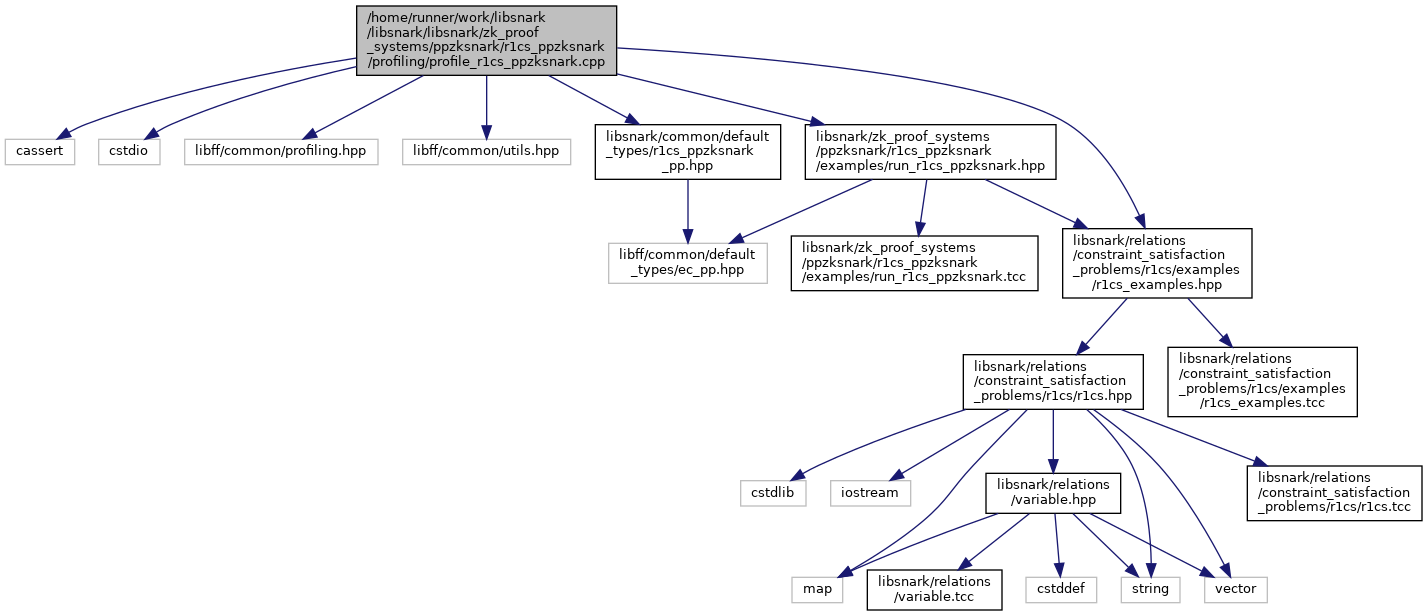#include <cassert>#include <cstdio>#include <libff/common/profiling.hpp>#include <libff/common/utils.hpp>#include <libsnark/common/default_types/r1cs_ppzksnark_pp.hpp>#include <libsnark/relations/constraint_satisfaction_problems/r1cs/examples/r1cs_examples.hpp>#include <libsnark/zk_proof_systems/ppzksnark/r1cs_ppzksnark/examples/run_r1cs_ppzksnark.hpp>
Include dependency graph for profile_r1cs_ppzksnark.cpp:

Go to the source code of this file.
Functions | |
| int | main (int argc, const char *argv[]) |
Detailed Description
Profiling program that exercises the ppzkSNARK (first generator, then prover, then verifier) on a synthetic R1CS instance.
The command
$
libsnark/zk_proof_systems/ppzksnark/r1cs_ppzksnark/profiling/profile_r1cs_ppzksnark 1000 10 Fr
exercises the ppzkSNARK (first generator, then prover, then verifier) on an R1CS instance with 1000 equations and an input consisting of 10 field elements.
(If you get the error zmInit ERR:can't protect, see the discussion above.)
The command
$
libsnark/zk_proof_systems/ppzksnark/r1cs_ppzksnark/profiling/profile_r1cs_ppzksnark 1000 10 bytes
does the same but now the input consists of 10 bytes.
- Copyright
- MIT license (see LICENSE file)
Definition in file profile_r1cs_ppzksnark.cpp.
Function Documentation
◆ main()
| int main | ( | int | argc, |
| const char * | argv[] | ||
| ) |

 1.8.17
1.8.17